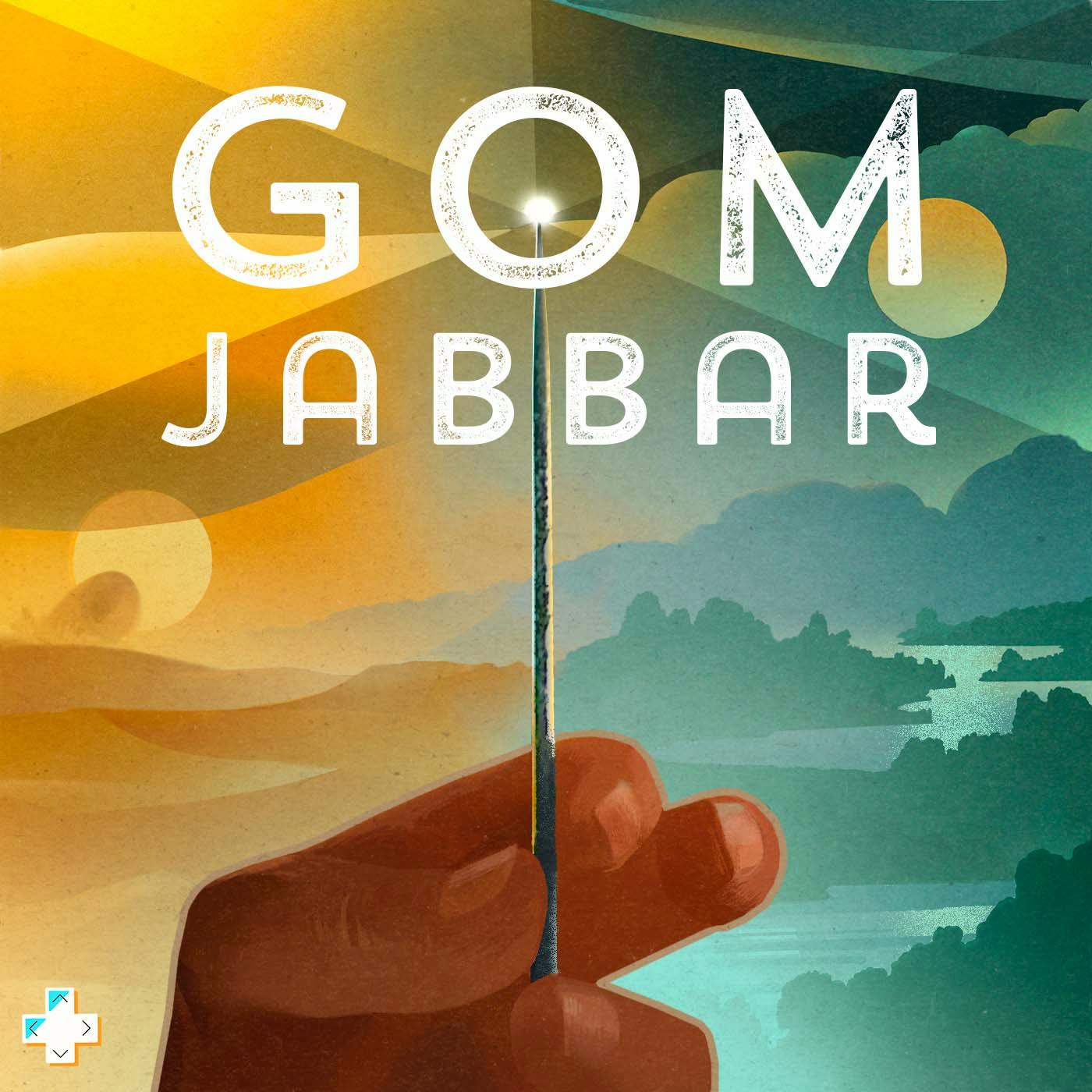Hi folks, Abu and Leo here with a little bit of a teaser for what's to come on the next episode of Gamja Bar.We have heard you loud and clear.Many of you sent us positive feedback on the Interviews with Frank Herbert episode.
So many of you loved it, so many of you are asking for more, and so we're going to answer the call.We are already working on the next episode of Interviews with Frank Herbert and digging into more tape and more interviews.
But as we stated in that first episode, this type of episode takes a lot of work and a lot of research, more than our typical episodes do.
So today we're going to leave you with just a little bit of a teaser of what's to come, and we'll see you soon with a brand new edition of Interviews with Frank Herbert.
Hello, as she said, I'm Leanne Sharp, and I'm here to introduce Frank Herbert.But before we do that, we have a couple of announcements we have to do in conjunction for Engineers Week.
A year after the release of Chapterhouse Doom, Frank Herbert was invited to speak to a group of engineering students at UCI.He was there to speak on a very on-brand topic.
That's it for the announcements for Engineers Week.And I'd like to introduce Frank Herbert.He's written many books, 27 in all, probably most familiar with the Dune Series.
He's also written things like The Eyes of Heisenberg, The White Plague, Worlds of Frank Herbert, and his newest book, Chapter House One.He currently resides in the Olympian Peninsula in Washington and has a winter home in Hawaii.
And today what we'll be talking about is mythology of futurism.
During the next thirty or so minutes, Frank speaks on much more than just the mythology of Futurism, covering everything from his inspirations for writing Dune to the flaws of scientific thinking.
I'm going to declare a heresy for you.All science goes back to something that we believe because we believe it.And we have no proof for it.It's like a religion.
But as we increase what we think we know, we increase our exposure to what we do not know.This is one of the inevitable laws of our universe.But isn't it more interesting to live in a universe where there are unknowns to discover?
After his speech, there's a Q&A portion.One of the students takes the mic and begins their question with a bit of flattery.Mr. Herbert, I'm on your right.Okay.Over there?
Yeah.As a major author of great creativity and insight, you have gained the respect of millions. Yet.
Gee, watch out for my head.
It's coming up like a balloon.But the balloon is quickly popped as the student gets to the heart of their question.The topic clearly flusters Frank, who interrupts multiple times and begins answering before the student finishes speaking.
I think it's going to go down in a sec.Yet you have chosen to cast token gay characters in a negative light.
The images that you present in your popular work Dune and its movie specifically can only promote... I didn't do the movie, you understand that.
...can only promote bigotry and violence against lesbians and gay men and silence... Of course, what I was doing with the gay population there, I was only saying one thing.I was saying that homosexuality is a natural occurrence in our society.
In your teens, you're naturally this way.
After Frank's response, the student chimes in again.
Well, I hope that in the future, that you portray in any books that you do write in the future, do in fact responsibly represent lesbians and gays in a manner consistent with your non-lesbian, non-gay characters.
And that's where the entire interaction could have ended.But Frank keeps responding, and says one of the most damning things about homosexuality that he's ever said on the record.
It causes a stir in the crowd and leads to this awkward silence in the room.
Another thing I was saying is that gays have opted to not continue the species. That's just true.
The moment gets even more tense as the student angrily responds.And it sounds like the microphone is taken from them.
orientation is a natural part of ourselves.I didn't choose to be gay.I just am gay.
Of course.That's what I'm saying.A person doesn't choose.It happens.But it happens for a lot of reasons.Sometimes it happens for psychological reasons.
Secondly, I happen to know many gay people being openly gay.Gay people are not afraid to be open with me.And most gay people have nothing against children.Most gay people even want their own children.So what you just said is
Well, it's a little hard to hear this part, but the student is saying that most gay people have nothing against children.And the student says that they even know gay people who want children.And then Frank cuts in again.
Well, it's a lot more difficult.That is going to be a sensation.Hello, Mr. Herbert.Yeah.
On your left, I'd like to thank you for the enjoyment you give me.
That's where the interaction ends, and the mic is handed to the next student for another question, the conversation continues.But that is a really tough moment for Frank, who does not come off in a positive light.
For today's episode, we examined hours of records like this UCLA tape to try and understand the story of Dune through the mind of its creator, and to find enlightening and uncomfortable moments like this one.
We do a lot of fun speculating and interpretation on this show about Frank Herbert's iconic universe.But today, we're doing something different.We're hearing from the man himself, in his own words, what Dune is about.
Welcome to Interviews with Frank Herbert.
 Sign in
Sign in Sign in
Sign in Sign in
Sign in
































